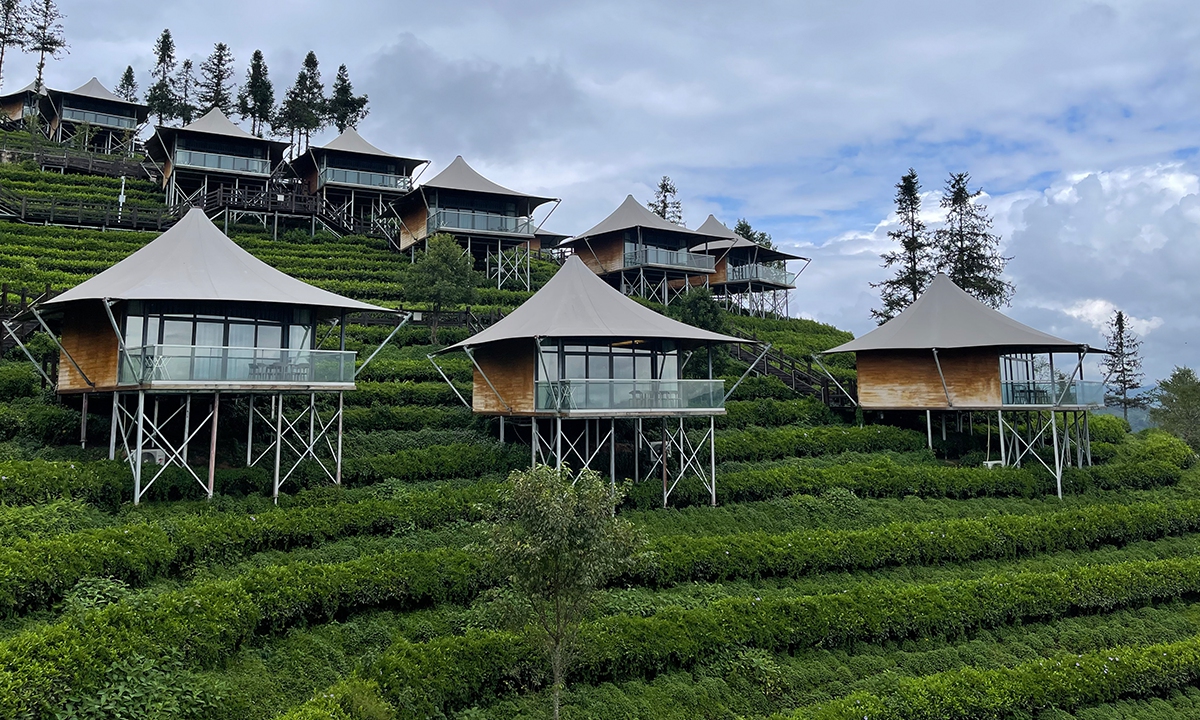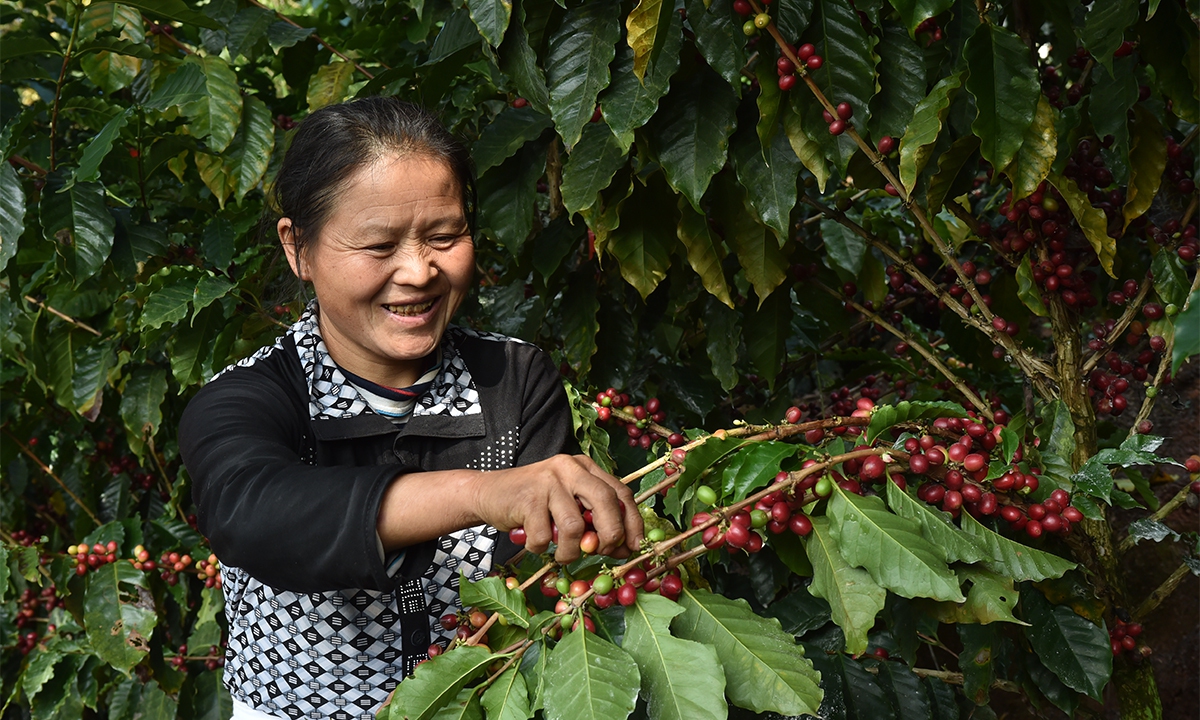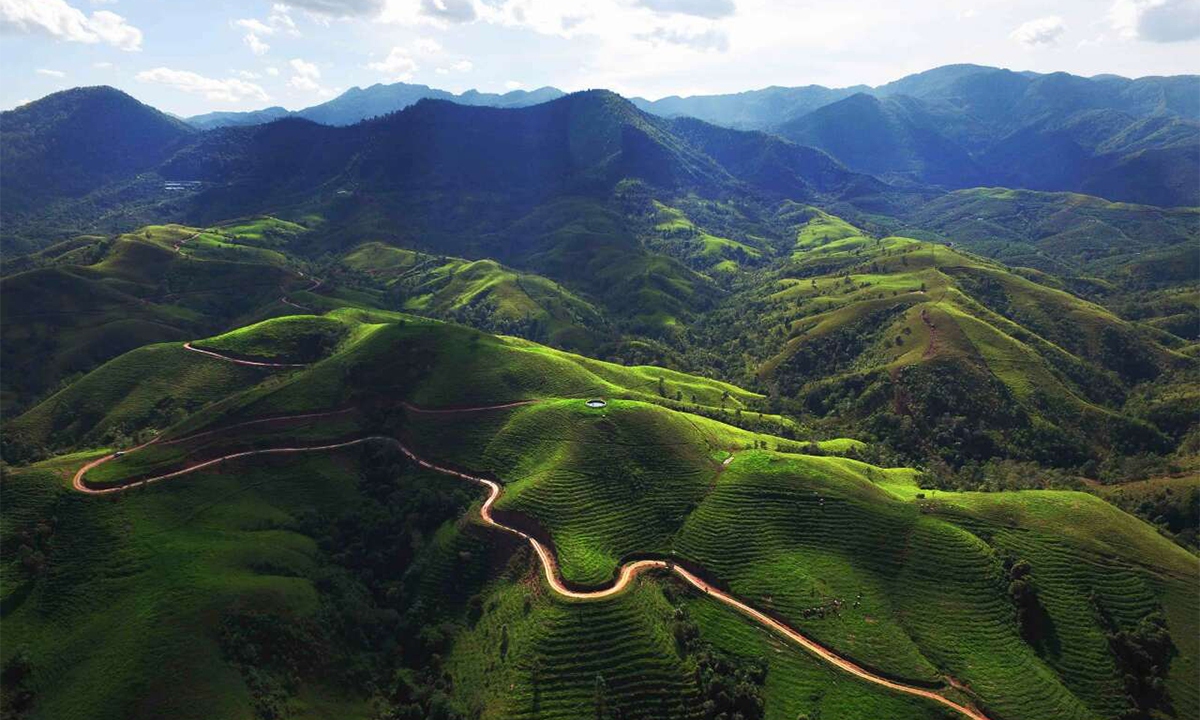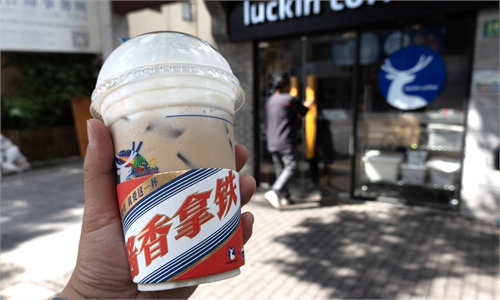ARTS / CULTURE & LEISURE
Pu'er: brewing a new future
Is coffee becoming China's cup of tea?

Photo: Courtesy of the Pu'er Yunchongtang Tea Professional Cooperative
In the southwestern region of China's Yunnan Province, there lies a border city named Pu'er. As the tea distribution and trade center of the ancient Tea Horse Road, the city is recognized as the origin of the renowned Pu'er tea and tea culture. In 2013, it was bestowed the title of "Tea Source of the World" by the International Tea Committee.
What is less known is that Pu'er is not just a tea haven, but also the "coffee capital of China." Despite covering an area of only 45,000 square kilometers, which is less than 0.5 percent of China's total landmass, the city is home to the largest coffee plantations and the highest coffee production output in China. In 2022, Pu'er produced a total of 55,700 tons of coffee, accounting for over 50% of the national coffee production.
The high-quality coffee beans Pu'er produces have made the city a key supplier of international coffee giants such as Starbucks, Nestlé, Manner and Seesaw. Meanwhile, the city is also nurturing its own Chinese coffee brands, including Starbucks's Chinese partner Ai Ni Group, which are making their mark in the global market.

Photo: Courtesy of the Ai Ni Group
A city of delightful fusion
With a mountainous area covering more than 98% of its land, a forest coverage rate of about 75%, and an average annual temperature of 19.5°C, Pu'er enjoys a frost-free period exceeding 315 days. These conditions provide a unique natural advantage for the cultivation of local tea and coffee.
Wild ancient tea trees of some 2,700 years old and half wild and half cultivated ancient tea trees older than 1,000 years have been discovered in Pu'er, making it one of the earliest adopters of tea cultivation which had a "significant" influence on world tea culture, according to the UNESCO. In 2022, the city boasted 2.09 million mu (139,000 hectares) of tea gardens.
The city's coffee history traces back to 1892 when a French missionary planted the first coffee seed in a village in Pu'er. In 1988, Nestlé entered the city to kickstart coffee cultivation. By 2022, the coffee plantations had expanded to a whopping 680,000 mu.
Tea and coffee have become integral to the lives of local residents, providing employment opportunities for over 1.3 million people, more than half of the city's whole population, engaging them in the tea and coffee industries.
For the people of Pu'er, tea and coffee have evolved more than just beverages—they are a way of life. The city is dotted with tea houses and coffee shops, where the aromas of these two beverages mingle in the air, offering a delightful fusion of ancient and modern, tradition and trend, and Eastern and Western cultures.
The local saying: "With coffee in the left hand and tea in the right hand" epitomizes the distinctive local lifestyle, where residents incorporate both into their daily routines. The combination of "tea and coffee + travel" has also become a hallmark feature for promoting tourism and cultural exchanges in Pu'er.

The aerial view of the Ai Ni coffee farm. Photo: Courtesy of the Ai Ni Group
More than a drink
Puer's sprawling tea and coffee plantations not only enhance the local ecology and yield high-quality products but also serve as touristic resources. The integration of tourism and tea and coffee experiences has given rise to tea-themed attractions, tea tourism farms, and tea planting bases, among others. These offerings provide interactive experiences, production line tours, and a chance for tourists to immerse themselves in the world of tea.
Moreover, Pu'er has incorporated elements of Pu'er tea into the development of distinctive towns. These towns encompass a range of attractions and facilities, including Pu'er tea shops, tea-lined streets, tranquil tea rooms, tea culture-inspired inns, and captivating tea art performances, thus creating a unique, tea-infused atmosphere for visitors.
In addition to tea, currently there are also 13 elite coffee farms in the city. For example, the "Xiao'aozi coffee farm" is an internet-famous tourist destination in Pu'er where visitors can pay just 60 yuan ($8.2) to taste nine different types of coffee, experience coffee brewing and learn about coffee processing techniques. Since 2021, over 20,000 coffee enthusiasts have tried this aromatic experience. The business scope of the coffee farm has expanded beyond coffee trading to include ecotourism.
The Ai Ni coffee farm, operated by the homegrown coffee brand Ai Ni Group, covering an area of 2,000 hectares, integrates production, education, research, and tourism all in one, and serves as a place of relaxation and diverse experiences, catering to all preferences.
Tourists can visit the distinctive rainforest coffee base, plant their own coffee trees, participate in the coffee plantations, roast, taste coffee, and witness the entire coffee production chain.
Besides, they can also experience rural gardening activities, such as going horseback riding and picking vegetables and fruits. Finally, there's the opportunity to attend a bonfire evening party with outdoor karaoke after enjoying a satisfying meal and drinks.
"Our goal is to emulate Starbucks' premium coffee farm in Costa Rica, and establish a high-quality Chinese coffee brand to become the 'Moutai of the Coffee Industry,'" Liu Minghui, founder and chairman of the Ai Ni Group, told the Global Times.
Wang Xiaochun contributed to this story

